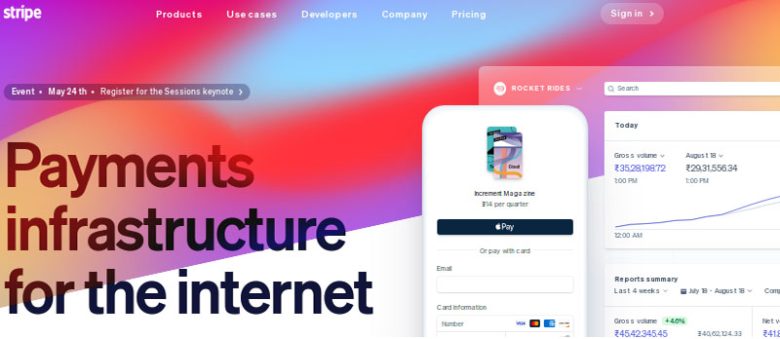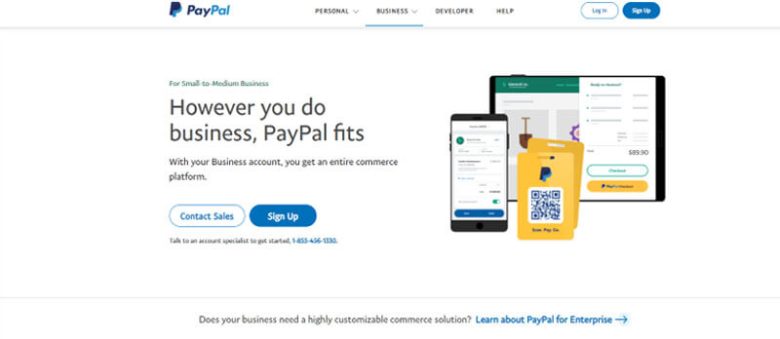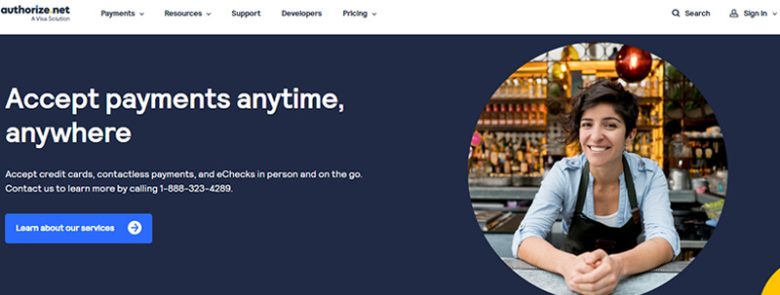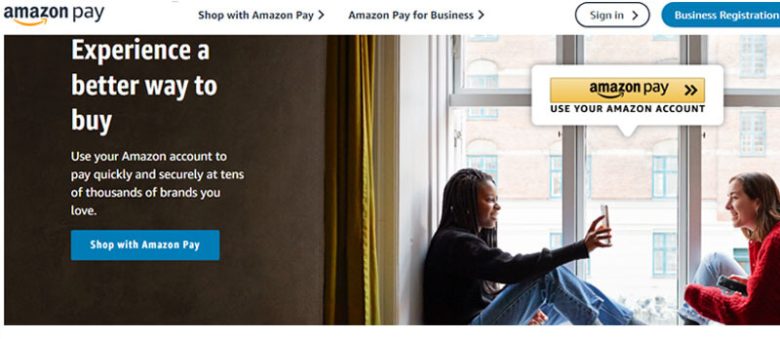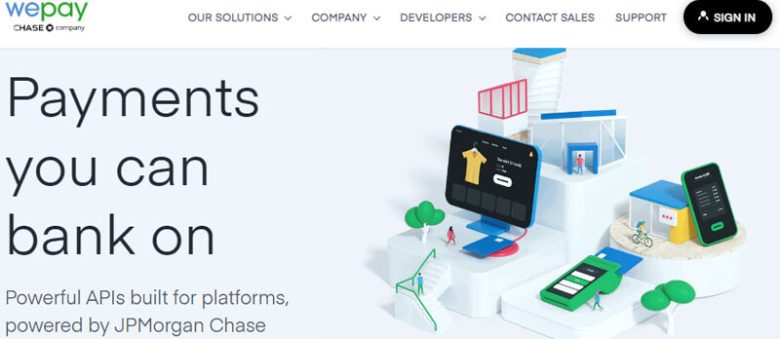It has become common for people to shop for their favourite products and apparel from leading shopping portals. To complete the deal, they provide their credit card details for payment purposes. eCommerce business evolution can be termed to be based upon the ability to carry out transactions over the web. There is no need to be worried about your details getting robbed or defrauded. During early times, the providers had to design their gateways with limited transaction modes. Then numerous generated online payment gateways. These acted as a middleman to offer instant, atomic and reliable transactions to both customers and business holders.
Top Online Payment Gateways
1. Stripe:
Launched in 2010, this platform is just a decade old. Within a short time, it managed to get valued at approximately $20 Billion. It provides its eCommerce business users with a trial period combined with delayed payments without refund fees. It is easy to set up, maintain and integrate. Customers can stay onsite when making their payments. They are not redirected to the payment site, thus deriving a seamless shopping experience. It is also compatible with other payment methods, accepting cryptocurrencies such as Bitcoin. It is presently accessed in 21 countries.
2. PayPal:
Launched in 2002, it is considered to be the most used among all available payment gateways. Presently, it accepts Multi-currency and International payments. A few reasons for businesses to prefer this platform are easy setups, security and brand recognition. Although costly it is quite popular and offers amazing customer experience. Users of over 203 countries avail it without having to pay any monthly fees or startup costs. They have a talented antifraud team. Multiple suspicious accounts have been suspended to date based on transaction evaluations.
3. Authorize.net: Online Payment Gateways
This online onboarding platform is popular for its flexible nature and Developer-friendly API. It is quite secure while promoting an advanced fraud detection suite, thereby avoiding fraudulent transactions and chargebacks. However, dollar transaction amounts furnishing immediate funds transfer and quick transactions is not limited. It also offers plenty of interesting add-on features. It includes a simple checkout system and fraud prevention. The difference here is in charging. A fixed monthly amount is charged besides transaction fees.
4. Amazon Pay:
Amazon backs this online onboarding It is a popular hosting payment gateway for medium and small enterprises. This account offers advanced fraud protection services. Presently, users in Germany, UK and the US can get access to it. Also is a facilitated onsite checkout option. It has a simple API with multiple solution provider platforms and free plugins. There are provisions for Alex\a usage to help shoppers to get engaged further.
5. Square:
Brick and mortar businesses benefit immensely from this platform. They bring together hardware, software and payment provisioning. It is desired for on-location and online sales. Virtual terminal is the major focus allowing payments to be made from any device, be it tablet, phone or desktop. It also captures payment information at the POS. It routes transactions directly while working with leading Credit Card payment-gateways to offer seamless customer experience.
6. WePay: Online Payment Gateways
It is popular for its Crowdfunding services instead of eCommerce service provider. Its services and API are found to be more leaned towards crowdfunding portals. They are rather streamlined to facilitate such payment type. It permits ACH and Apple Pay payments, but not PayPal payments. This platform is considered to be payment aggregator. Thus it leads to several frozen accounts that are based upon transaction assessment algorithms.
The above are few of the top online payment gateways that businesses may consider incorporating in their websites to accept payments. But each one has its pros and cons. It will be necessary to make the right selection.


